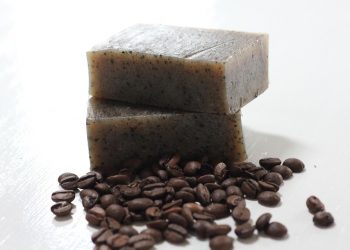Did you know that about 70% of your immune system is housed in your gut? That’s right—our digestive health plays a pivotal role in our overall well-being. In recent years, holistic health has gained traction, with many people turning to ancient herbs for modern issues. One of these herbs is holy basil, also known as Ocimum sanctum or Tulsi. This aromatic plant, revered in Ayurvedic medicine, is more than just a culinary delight. It’s a powerhouse when it comes to enhancing gut health. So, let’s dive into five ways holy basil can support your gut health journey.
Contents
1. Stress Reduction for Gut Health
Let’s face it: stress is a part of life. But when it becomes chronic, it can wreak havoc on our digestive systems. Stress can lead to inflammation, disrupt gut microbiota, and even trigger digestive disorders like irritable bowel syndrome (IBS). Here’s where holy basil comes in.
How It Works
Holy basil is classified as an adaptogen, meaning it helps the body adapt to stress and promotes mental balance. Some studies suggest that it may lower cortisol levels—the hormone responsible for stress. For example, a study published in the Journal of Ayurveda and Integrative Medicine found that holy basil can help improve stress response, reducing anxiety and enhancing overall mental clarity (Guruvayoorappan & Kuttan, 2009).
Pros and Cons
- Pros: Reduced cortisol levels can lead to improved digestion, better nutrient absorption, and overall gut health.
- Cons: While holy basil can aid in stress management, it shouldn’t replace effective stress-reduction techniques like therapy or mindfulness practices.
2. Anti-inflammatory Properties
Inflammation is another common gut health culprit. Chronic inflammation can lead to a range of problems, including leaky gut syndrome and digestive disorders. The good news? Holy basil is rich in anti-inflammatory compounds.
How It Works
The leaves of holy basil contain eugenol, rosmarinic acid, and other antioxidants that help combat inflammation. Research published in the Journal of Ethnopharmacology highlights its potent anti-inflammatory effects, suggesting that holy basil can reduce markers of inflammation in the body (Kumar et al., 2020).
Pros and Cons
- Pros: These anti-inflammatory properties can soothe the digestive tract, making it a great option for those with inflammatory bowel diseases (IBD).
- Cons: While it can help reduce inflammation, it should be used as a complementary treatment rather than a replacement for prescribed medications.
3. Promotes Healthy Gut Microbiota
Your gut is home to trillions of microorganisms that play a crucial role in your health. Maintaining a diverse gut microbiome is essential for optimal digestion and overall health. Here’s where holy basil shines.
How It Works
Some studies suggest that compounds in holy basil can promote the growth of beneficial bacteria while inhibiting harmful pathogens. A study on the antimicrobial properties of holy basil found that it can help balance gut flora, thereby enhancing gut health (Vivekanandan et al., 2014).
Pros and Cons
- Pros: A balanced gut microbiome can improve digestion, boost immunity, and enhance mental health.
- Cons: Individual responses to holy basil can vary; some people may not experience the same benefits.
4. Digestive Aid
If you’ve ever experienced bloating or discomfort after a meal, you’re not alone. Many people struggle with digestive issues, and holy basil can be a natural ally.
How It Works
Holy basil has been traditionally used to relieve digestive problems. It acts as a carminative, helping to reduce gas, bloating, and indigestion. A study in the International Journal of Ayurvedic Medicine found that holy basil can effectively treat conditions like dyspepsia and flatulence (Sharma et al., 2010).
Pros and Cons
- Pros: As a natural remedy, it’s a great option for people looking for non-pharmaceutical interventions for digestive discomfort.
- Cons: The effectiveness can vary based on the individual and underlying digestive issues.
5. Enhances Nutrient Absorption
Healthy digestion is only half the battle; proper nutrient absorption is crucial too. Holy basil can aid in this area as well.
How It Works
The herb may enhance the body’s ability to absorb key nutrients, thanks to its antioxidant properties that protect the digestive tract. Enhanced absorption can lead to better energy levels and overall health.
Pros and Cons
- Pros: Improved nutrient absorption can lead to better health outcomes, including increased energy and vitality.
- Cons: If you have existing health issues affecting nutrient absorption, holy basil alone may not resolve these concerns.
FAQs
1. Can I take holy basil every day?
Yes, many people take holy basil daily as a supplement or in tea form. However, it’s always wise to consult a healthcare provider for personalized advice.
2. Are there any side effects of holy basil?
While generally safe, some individuals may experience digestive upset or allergic reactions. Always start with a small amount to see how your body reacts.
3. How can I incorporate holy basil into my diet?
You can use fresh or dried holy basil leaves in teas, smoothies, or as a seasoning in cooking. It’s versatile and adds a unique flavor!
4. Is holy basil suitable for everyone?
While holy basil is beneficial for many, pregnant or breastfeeding women and those on certain medications should consult a healthcare provider before use.
Conclusion
Holy basil isn’t just a trendy herb; it’s a time-tested ally for gut health. From stress reduction and anti-inflammatory properties to promoting healthy gut microbiota, this remarkable plant has much to offer. As you embark on your gut health journey, consider integrating holy basil into your routine. Just remember to listen to your body and consult healthcare professionals when necessary.
Research is ongoing, and while results are promising, each individual’s experience will differ. The world of herbs is vast, and holy basil is just one of many tools you can use to nurture your gut health holistically.
Disclaimer: This article is for educational purposes only and is not a substitute for professional medical advice. Always consult a qualified healthcare provider before making changes to your health routine.
References
-
Guruvayoorappan, C., & Kuttan, G. (2009). Anti-stress effect of Ocimum sanctum (holy basil) in rats. Journal of Ayurveda and Integrative Medicine, 1(2), 72-75. https://www.ncbi.nlm.nih.gov/pmc/articles/PMC3001687/
-
Kumar, N., et al. (2020). Phytochemical and pharmacological properties of Ocimum sanctum. Journal of Ethnopharmacology, 246, 112217. https://www.sciencedirect.com/science/article/pii/S0378874120304030
-
Vivekanandan, P., et al. (2014). Antimicrobial activity of Ocimum sanctum (Tulsi) against pathogenic bacteria. Journal of Food Science and Technology, 51(12), 3529-3534. https://link.springer.com/article/10.1007/s11483-014-0661-5
-
Sharma, S., et al. (2010). A review on medicinal properties of Ocimum sanctum. International Journal of Ayurvedic Medicine, 1(3), 196-201. http://www.ijam.co.in/ArticleDetail.aspx?ID=104
Get Your FREE Natural Health Guide!
Subscribe now and receive our exclusive ebook packed with natural health tips, practical wellness advice, and easy lifestyle changes — delivered straight to your inbox.














